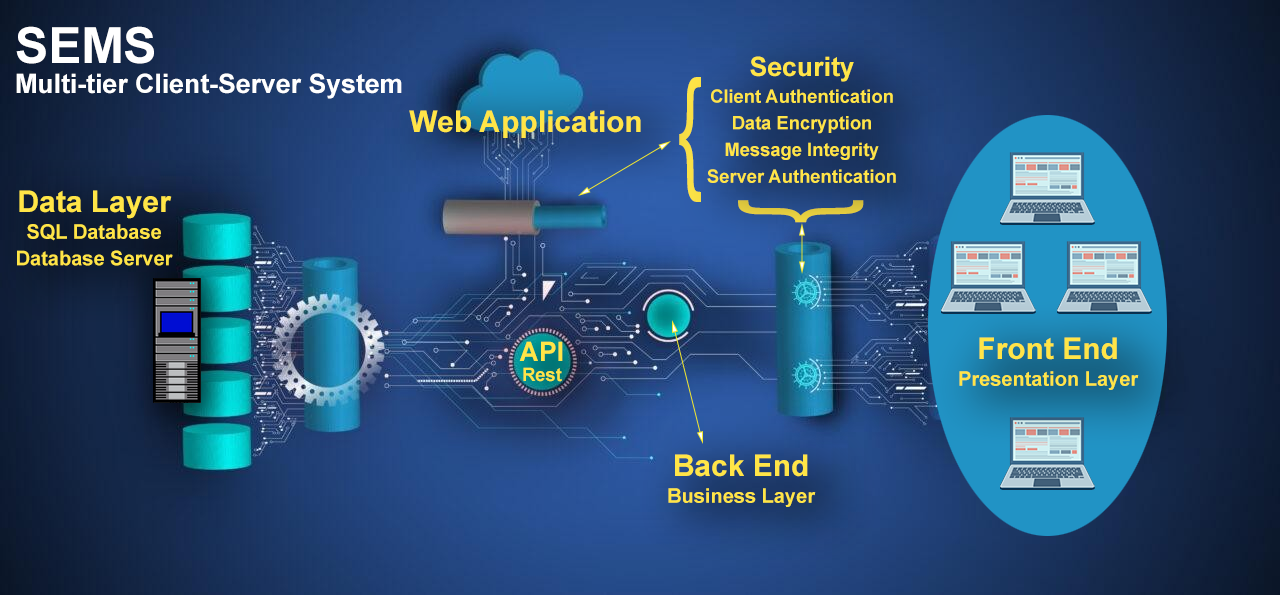Phoenix - Introduction & Overview
Introduction
The Sense-i Enterprise Management System (SEMS) is a Multi-tier Client-Server system.

- Information/data is stored on a Microsoft SQL Database, accessed from
- a central computer (Server), known as the Database Server, using
- Internet connectivty.
- Firewall Security, together with
- Client-Certificate Authentication and
- Encrypted Username & Password access protects information flow, to and from the
- SEMS Business Application tier, which is
- presented on the SEMS Front End program (Client) installed on each Login Users' Personal Computer.
- The Web Application tier allows HTTPS access over SSL (Secure Socket Layer), which provides data encryption, server authentication, message integrity, and client authentication for a fortified TCP/IP connection.
- The Web Application grants public access, authenticated & verified by an API Rest server, to register a bonafide individual as web-user, who can send and request information pertinent to the System.
Phoenix is an upgrade to the Sense-i Enterprise Management System (SEMS) front-end.

The Phoenix Architecture is based on a layered infrastructure.
Currently in Beta form, Phoenix is being developed using the latest software technology.

The Phoenix front-end program allows you to view, update and add new information which is stored on the Database Server.
Features
Some of the upgrade features of Phoenix include:
- A Modern and easy-to-use UI (User Interface)
- Enhanced Navigation
- Create and Save Custom Views
- Custom "Skins" that change the graphical appearance of your interface
- More information can be accessed and viewed simultaneously
- Open screens on different monitors
- Dock multiple screens next to each other to view related information
- Switch easily between screens and windows using a familiar interface
- Bulk select and edit multiple records at the same time using Jobs
PHOENIX - The First Glimpse
For detailed information on the Phoenix features, please refer to the associated documents below: